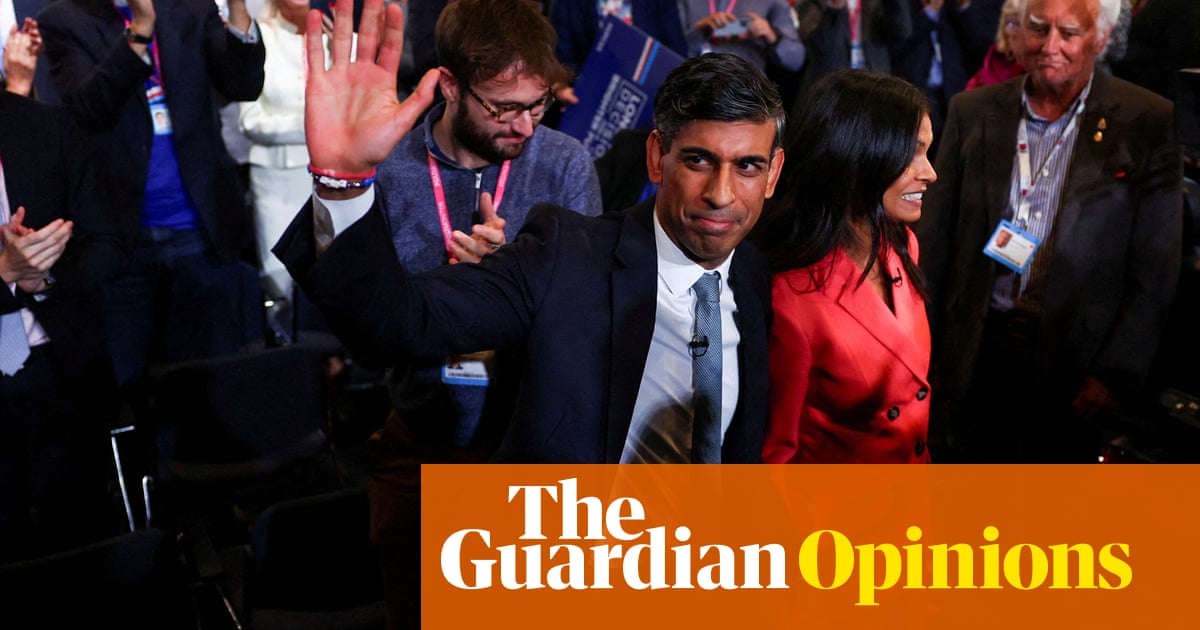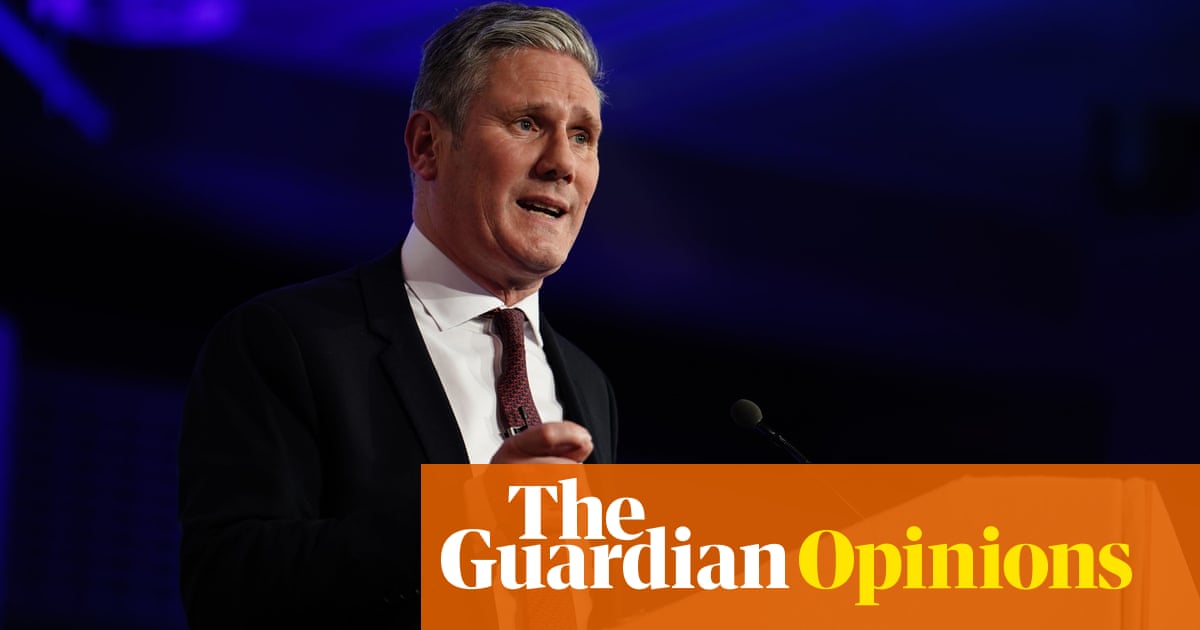
Three weeks ago, Keir Starmer seemed to be heading for another byelection humiliation and a senior Labour official told the Mail on Sunday why. “We’re haemorrhaging votes among Muslim voters, and the reason for that is what Keir has been doing on antisemitism,” the unnamed strategist said. “There’s been a backlash among certain sections of the community.” The Muslims of Batley and Spen were apparently so giddy with hatred of Jews that they couldn’t even vote straight.
Outrage ensued. The party censured the statement and hastily announced an investigation into its source. Then came the sequel.
Last Friday, within hours of Kim Leadbeater scraping home in the West Yorkshire constituency, yet another of Labour’s reserve army of anonymously toxic officials boasted to the Times: “Basically built a new electoral coalition in six weeks. Lost the conservative Muslim vote over gay rights and Palestine, and won back a lot of 2019 Tory voters.” So this is apparently Labour’s new “red wall” playbook: prejudice from some white voters amounts to “legitimate concerns” to be pandered to; prejudice from some Asian Muslim voters is used to tar an entire community. Fans of Nigel Farage must be wooed back into the red corner, while supporters of his old mucker George Galloway are to be castigated for disloyalty.
Once may be a gaffe; twice is becoming a habit. The comments to the Times reappeared in the Guardian and all over social media, except this time the party made no apology. To the best of my knowledge, it was only when I raised the remarks with Labour that it officially condemned them. Just a few years after Jeremy Corbyn so disastrously dealt with Jewish complaints about antisemitism, his successor is fast developing a new race problem.
Even as Starmer bemoaned the campaign’s “toxic atmosphere”, his staffers were telling the press that Muslims were united in their bigotry. This is to ignore, say, last month’s open letter from local Muslim women berating “a loud minority” of men, who “have plagued our area as ‘community leaders’”.
Labour representatives blew these dogwhistles in a byelection where no fewer than three far-right parties were competing – with Jayda Fransen, only recently out of jail for hate crimes against Muslims, standing as an independent candidate. Labour claimed to be campaigning in the name of Jo Cox, Leadbeater’s sister, who was shot and stabbed to death in the same constituency during the Brexit referendum by a far-right terrorist intoning “Britain First”. Among the last things the MP had been working on was a report into violence against Muslims, yet five years later senior employees of her party were in the business of blaming Muslims.
Meanwhile, back at party HQ, managers found time to readmit Trevor Phillips as a member after his suspension over Islamophobia last year. Phillips has claimed that British Muslims are “becoming a nation within a nation” and declared that placing a Christian girl with Muslim foster parents is “akin to child abuse”. Even while party officials are still investigating his behaviour, it appears their bosses were privately agreeing that the newly appointed Sky presenter should be welcomed back into the fold. The move has caused huge upset both within Labour and beyond. One shadow cabinet member I spoke to this week was beside themselves with anger: “It’s a mess. This party is really changing in ways I just don’t agree with.”
“A really dangerous signal,” is how Miqdaad Versi of the Muslim Council of Britain describes Phillips’ reinstatement. “If he was reinstated without due process or without apologising for the views he had expressed – even when many of these views are often heard among the far right – it signals that Labour accepts these views are OK.”
Labour is never as good on racism as it thinks. It is the party that brought you the “Controls on immigration” mug, and whose one-time home secretary David Blunkett warned of the danger of schools being “swamped” by the children of asylum seekers, and said that in crucial aspects the neo-fascist Pim Fortuyn was right.
The party says and does such crass things not primarily out of bigotry, but a desire to be smart. “We can afford to dump on that community,” floats the thought bubble, “because their voters have nowhere else to go, while we look more mainstream.” Yet this tactic never works, because it convinces no one. No voter in any of our 650 constituencies believes that a north London human-rights lawyer such as Starmer genuinely desires a union flag fluttering behind him every time he speaks. All it achieves is to make those values – whether they be soft racism or plastic patriotism – appear more mainstream.
After the banking crash of 2008, David Cameron and George Osborne pretended that the fault lay with Labour’s “pile of debt” – its spending on Sure Start centres and the like. It was politically cynical and economically illiterate, yet Ed Miliband’s team felt they had to go along with it, and never made a convincing case for the transformation that state investment can bring. The result has been over a decade of destruction of our public services, flatlining wages and the sour, angry, zero-sum politics we have today.
This time feels even more dangerous, the stakes far higher. Boris Johnson has a large majority and, if current polling holds, could be in power throughout a crucial decade in which a post-Brexit Britain is reconfigured. His government can appoint a Tory donor to chair the BBC, can disenfranchise young people and ethnic minorities, and can redraw electoral boundaries.
It can also set the parameters of the political conversation. And Johnson, the Tory who swallowed Farage’s vote, wants English nationalism at the heart of this hegemonic project. His will be the government that sends gunboats against the French, whose ministers claim the UK got the vaccine first (it didn’t) because it’s the best country in the world, and whose backbenchers will insist the BBC should splash flags across its corporate reports.
The traffic is never just one way, of course. As the late, great political theorist Stuart Hall observed after Margaret Thatcher, “Ideology is always contradictory.” For Thatcher that meant propounding free markets and a strong state. For Johnson it can combine populist nationalism with a cabinet that boasts Rishi Sunak, Priti Patel, Sajid Javid and Kwasi Kwarteng and a policy team at whose head sits Munira Mirza. But as Hall would have reminded us, such seemingly double-headed politics are harder to argue against.
I see no sign so far that Starmer’s team is even trying to counter the current Tory project. It commissions strategy documents that advise making “use of the [union] flag, [army] veterans [and] dressing smartly” and focusing on projecting cultural values rather than serious economic alternatives. Rather than trying to unify different groups within a common cause, it tries to play them off against each other. And it almost always fails.
The risks to the Labour party of being so empty have been much discussed. But it is high time we also considered the risks to the rest of us of having an opposition that won’t oppose those who aim to destructively remake British society; of having the main progressive political party in this country pandering to the worst kind of regressive politics. The failures we see notched up daily by Starmer’s team aren’t just political: they are moral.












